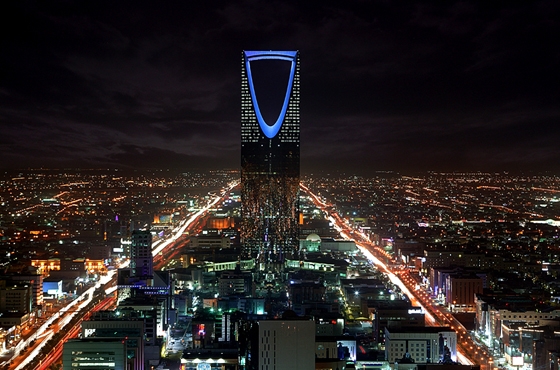Saudi Arabia's safe and sound economic policies have been 100 percent successful as evidenced by the largest budget in the country's history for 2015, which envisages SR 860 billion ($229.3 billion) spending during the new year.
These policies have enabled the Kingdom to tackle economic challenges at international and regional levels, say analysts. With the progress the Kingdom has maintained, they stress that the implementation of policies related to economic diversification and increased foreign trade can eventually lead to stronger budgets in the coming years.
In 2015, foreign trade is expected to grow at a rate of 5.5 percent, as compared to 5 percent last year, according to Saudi Arabian Monetary Agency ( SAMA ).
It estimated the total value of exports during 2014 at SR1.3 trillion, a decrease of 4.4 percent from the previous fiscal year.
Nonoil exports are expected to reach a total value of SR208 billion this year, an increase of 3.1 percent from the last fiscal year.
Of the Kingdom's total exports, nonoil products are expected to account for 15.4 percent.
Meanwhile, imports in the current year are expected to exceed SR564 billion, a decline of 2.6 percent from the previous year.
Preliminary estimates by SAMA indicate that the trade balance this year will achieve a surplus of SR788 million, a decrease of 5.6 percent from last year, due to lower oil exports.
"This budget proves that the Saudi economy remains free from the implications of fluctuations in global oil prices due to policies on economic diversification and increased foreign trade," said Kamel Al-Mojad, head of the Saudi Arabian-Indian Business Council.
He predicted Saudi foreign trade will grow substantially in the coming year, noting that the decline in the price of oil will have a direct impact on Saudi exports and imports.
"Under complex global conditions and circumstances, the Saudi economy has remained strong and stable," said Abdullah Al-Moleehi, head of the Saudi-Singapore Business Council.
A large part of the budget was being allocated to infrastructure projects in health, education, and transportation, he said.
He, however, stressed the need for attracting more capital from abroad to various sectors in order to contribute to greater diversification and allow for more development.
Abdulrahman Baashn, head of the Shorouq Center for Economic Studies in Jazan, called for more measures to boost confidence among foreign investments and allay concerns over taxation processes and mechanisms.
He also stressed the need to protect investors' rights and ease possible complexities in the investment system.
Mohemed Al-Hammadi, head of the Saudi-Moroccan Business Council and chairman of the Agriculture and Food Security Committee at the local chamber of commerce and industry, said increased investment and foreign trade, and modifications to increase foreign capital inflows into important projects and development programs are important steps that can create job opportunities for citizens.
Arab News
27 December























































